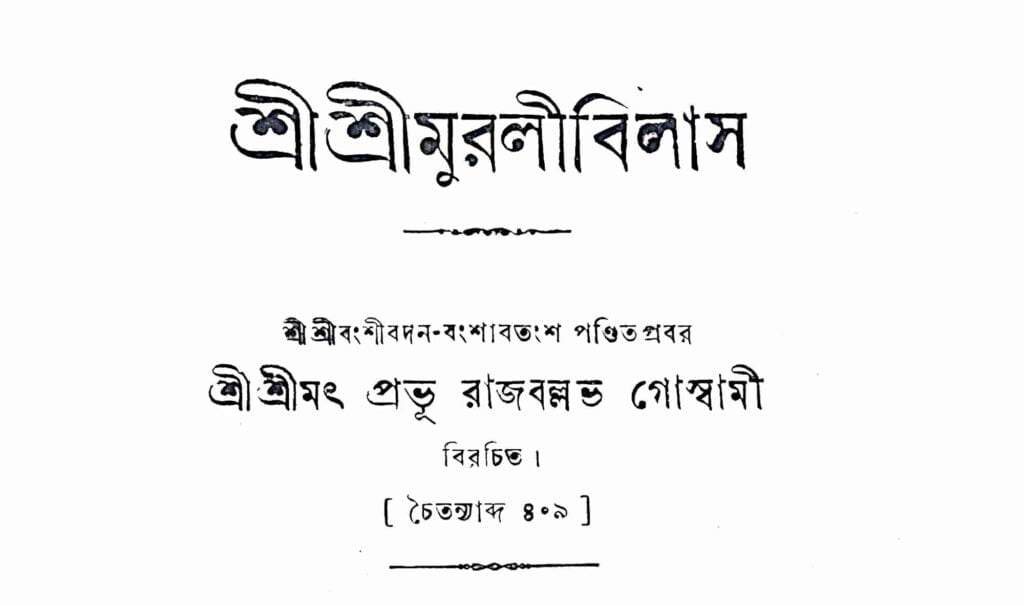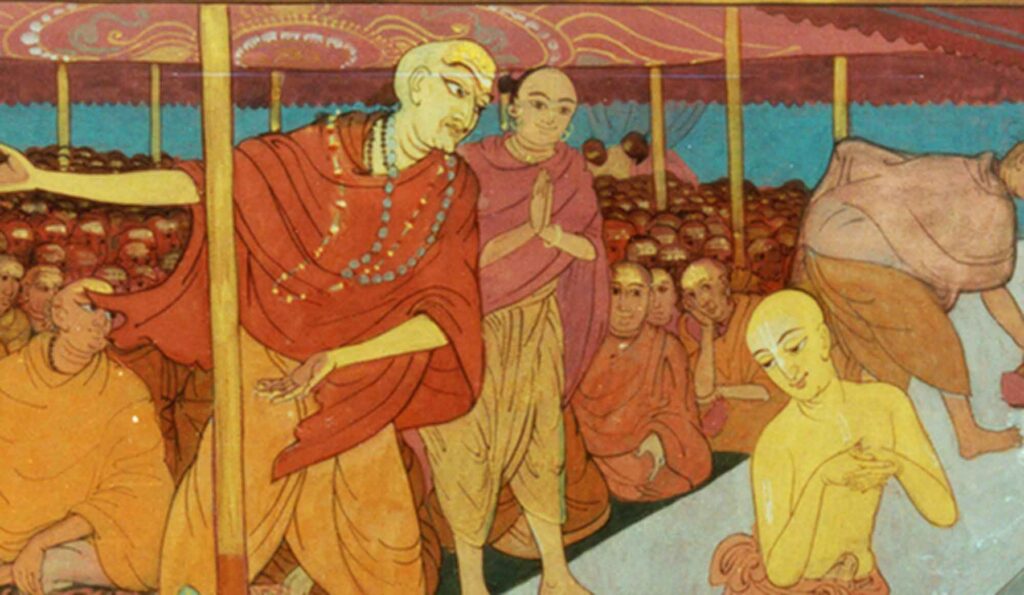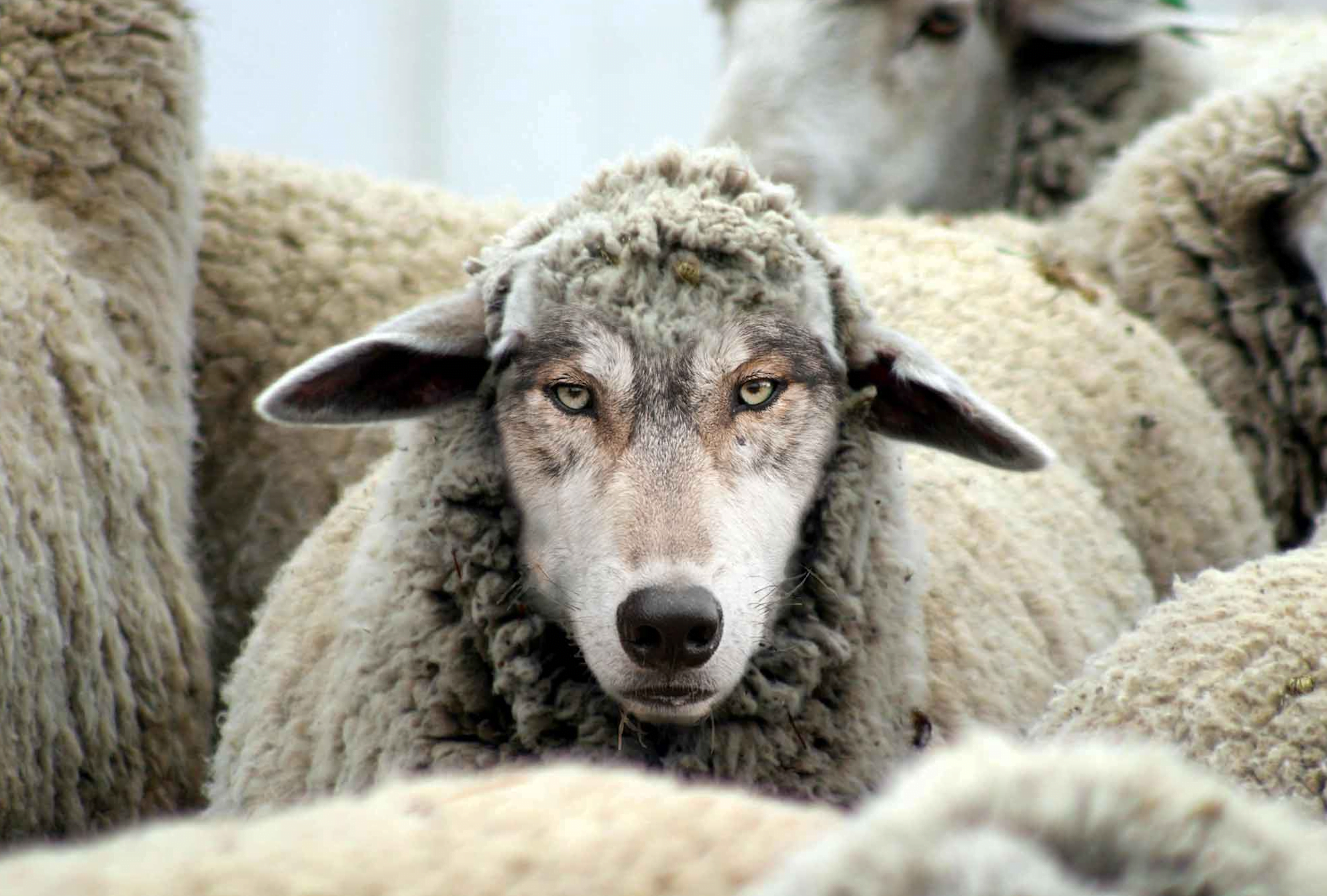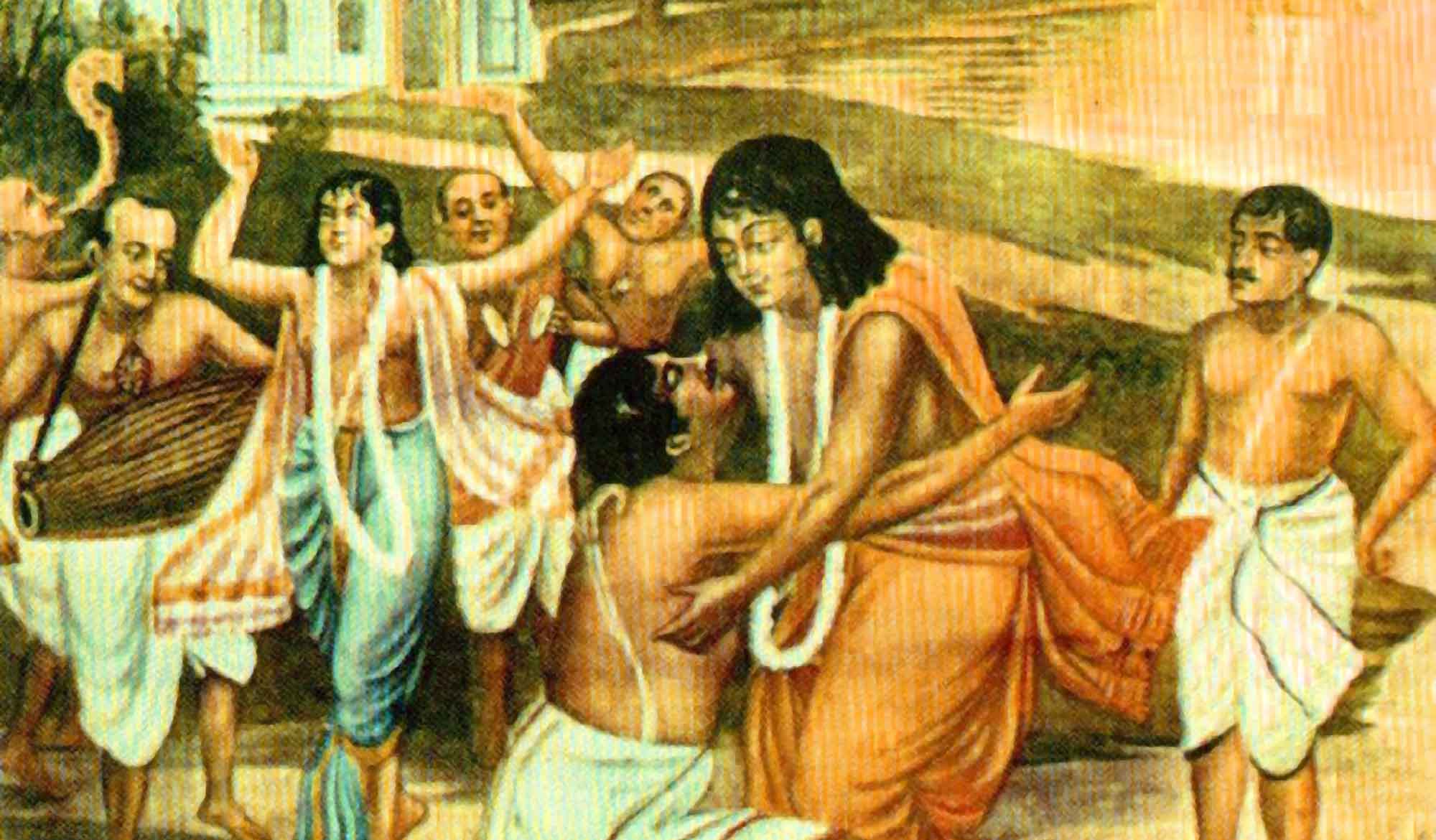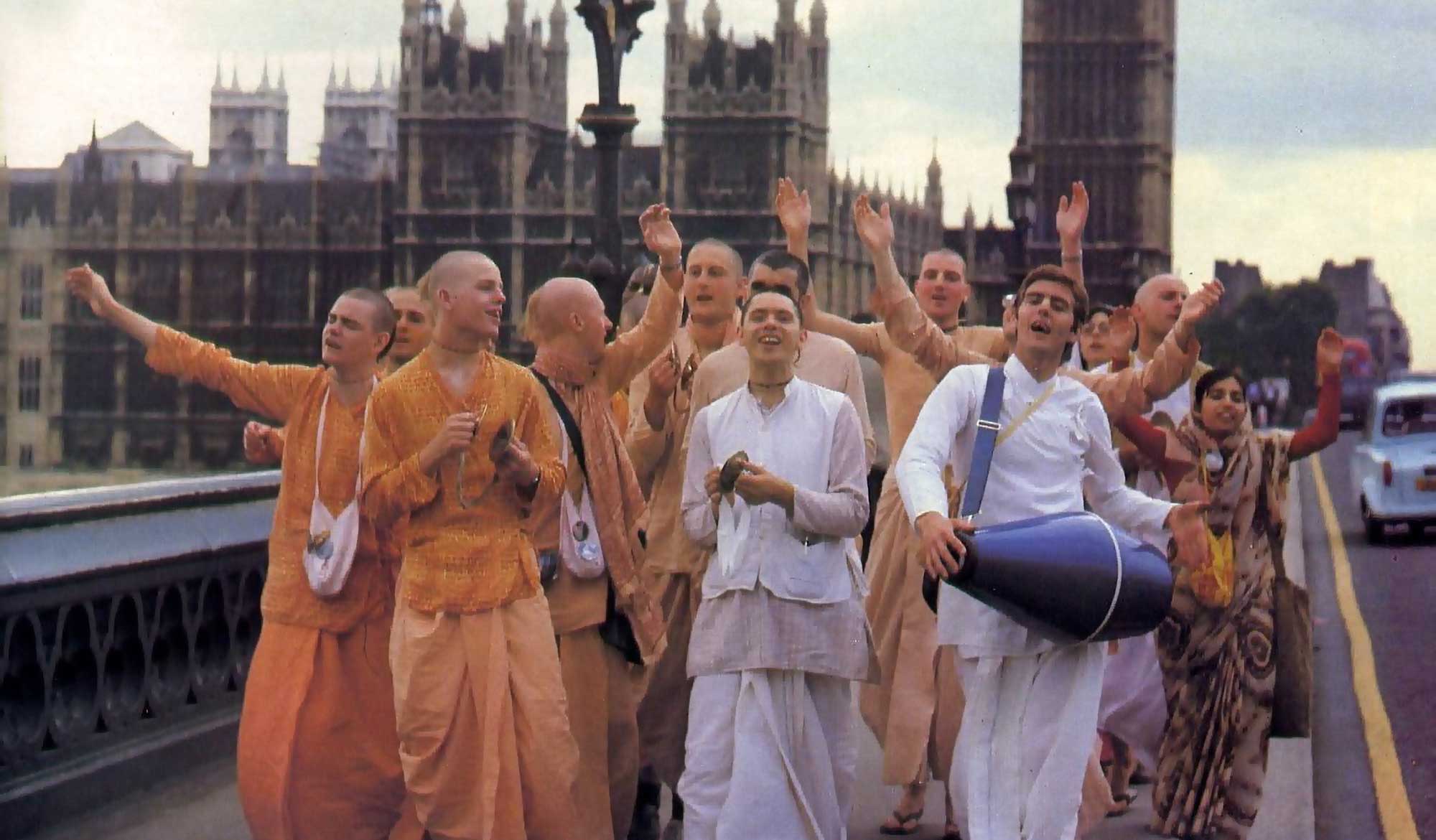Overview
Viśuddha Sāmpradāyikatāī Ārya Dharmera Gaurava (The Glory of Ārya Dharma Within Pure Sampradāyas) was first published in Sajjana Toṣaṇi, Vol.3 issue 3 in 1886. In this article Bhaktivinoda Ṭhākura explains how sectarianism and the sampradāya concept of the Vedas are not the same thing. He also discusses the dangers of mixing various ideologies with hari-bhakti.
(translated by Swami B.V. Giri)
The Importance of Sampradāyas in Ārya-śāstra
Bābu Śarat-Candra Datta Mahāśaya has written an article condemning sampradāyas (religious communities) and requested us to publish it in Sajjana Toṣaṇī. Previously, this article was published in a newspaper called Dainik and said to be written by the editor. We do not know whether Śarat Bābu is the editor of the Dainika or if he sat down and plagiarized the previously published article. In any case, the editor of the Dainika should know about that. We cannot publish such articles in Sajjana Toṣaṇī.
Reading the article convinces me of two things. The honourable author is opposed to the ārya-śāstra. He was taught to condemn sectarian dharma by British monotheists. The second thing is that he has a grudge against Vaiṣṇava dharma, especially towards the Viśva-Vaiṣṇava Sabhā. It seems that he is so overwhelmed by anger that he feels no shame in offending Vaiṣṇavas and Vaiṣṇava dharma.
By denouncing sampradāyas, we also condemn the ārya–śāstra. The ārya–śāstra benefits all jīvas. Their propounders are not as narrow-minded as those from other incomplete religions. Neither science nor history are satisfied with the notion that all jīvas have the same propensities. All jīvas are endowed with different inclinations. Amongst them are some jīvas who are inclined towards unity concerning certain fundamental subjects – that is one particular sampradāya. The instructions given to them by the śāstra is not acceptable to others of a different inclination. These propensities are stated by various sampradāyas to be karmīs, jñānīs and bhaktas. Amongst bhaktas, there are different inclinations even within their different sampradāyas. The provision of sampradāyas is the greatest glory of the ārya-śāstra and the ārya-ācāryas. Just as there are ten or twelve grades in a school, there are various sampradāyas within the ārya school of spirituality. It is not the case however, that by having many different sampradāyas, the unity of the ārya school will be destroyed. The word ‘sectarian’ used in the English language means something else. A ‘sectarian’ religion refers to other religions as irreligious. Sampradāyika religions understand other religions to be in different classes within one school. Anyone who denigrates the sampradāya system by distorting the meaning of the word ‘sampradāyika’ is utterly ignorant of the śāstra. When people from one sampradāya have a particular propensity towards another sampradāya, then they can enter that one. By accepting that sampradāya they become satisfied.
aneka janma-saṁsiddhas tato yāti parāṁ gatim
(‘He achieves perfection after many lifetimes and attains the Supreme Abode.” – Bhagavad-gītā 6.45)
Criticizing Sampradāyas
This statement of Bhagavān is very clear. If one attains a particular inclination, one can enter another sampradāya, but without properly considering that propensity, if one accepts that sampradāya, then it may have adverse effects. There are instructions for people of a specific inclination; those instructions are the philosophy for that inclination, and that philosophy and inclination are specific to a particular sampradāya. If one wishes to apply one propensity to the philosophies of different sampradāyas, then their philosophies will all become amalgamated and the philosophy will not be pure.
The ṛṣis have specifically indicated that a sampradāyika philosophy delivers teachings according to one’s propensity that are attained through a guru-paramparā. Any philosophy which is asampradāyika (not coming in a sampradāya) is anārya (uncivilised).
sampradāya vihīnā ye mantrās te niṣphala matāḥ
(“Any mantra which is not received through a sampradaya gives no result.” – Padma Purāṇa)
According to these words of the ṛṣis, we can understand that those persons that criticize sampradāyas are completely anārya and lacking in any proper conduct. According to the words of Mahādeva, the god of gods, and the worshippable ṛṣis, the Śaiva, Śakta, Gāṇapatya sampradāyas etc, which are included within the upāsanā-khāṇḍa, are all specifically there for the welfare of the jīvas who have different proclivities. The source of the upāsya-vastu (object of worship) is one, it is not different. The difference between the upāsya-vastu is only realised according to the inclination of the upāsaka (worshipper). The application of dedication to one’s own upāsya-vastu is extensive. That upāsya-vastu will eventually be merciful and bestowing high qualifications, gradually appears in the form of the Deity. For this reason, the ṛṣis always praise those philosophies that are suitable for a particular level of advancement as supreme in order to help strengthen a person’s dedication. When someone becomes a pure Śakta, they cannot enjoy the remnants of Vāmacāra (unorthodox worship of the Goddess). At that time they worship Śyāmā (Kālī) through japa, yajñā etc. Similarly, those who have attained the position of a Vaiṣṇava do not have the authority to accept remnants other than the remnants of Bhagavān. In this magazine, Śrīyukta Kālīpada Bābu wrote an article entitled ‘Kutarka’ stating that Vaiṣṇavas can accept the remnants of other Devas if they are worshipped in a sāttvika manner. This statement is not altogether flawless. Vaiṣṇava worship is nirguṇa (beyond the modes of nature). They are not authorised to accept the remnants of sāttvika-pūjā. In Puruṣottama-kṣetra, Śrī Vimalā Devī is worshipped with bhagavat–prasāda. All Vaiṣṇavas will accept that prasāda. The ṛṣis have stated, viṣṇo nirveditānnena yaṣṭavyaṁ devatāntaram – other Devas and the Pitṛs should be worshipped with the remnants of Viṣṇu. These remnants give to the other Devas is nirguṇa. All these topics are not for general discussion. Those persons who have attained some qualification will understand the rules and their significance by approaching their Gurudeva.
Pure Hari-bhakti vs. Mixed Philosophies
We harbour no ill-will towards Hari Sabhās (gatherings where the glories of Hari are sung). On the contrary, wherever I hear the Holy Name, I have respect. We have no desire for these Hari Sabhās to come to an end. Rather, we pray to Bhagavān that all these assemblies will immediately relish and propagate pure hari-bhakti. They should not imitate the anārya assemblies that propagate mixed philosophies which are averse to adhikāra-tattva (understanding the level of qualification and inclination of the members). If they accept names such as Hari-bhakti Dāyinī (‘the society for distributing hari-bhakti’), Hari-bhakti Pracāriṇī (‘the society for propagating hari-bhakti’) etc. then it is necessary for them to engage in activities that are favourable towards pure hari-bhakti. We pray that they will not engage in the philosophies and mundane ritualism of those of different inclinations. Āryan descendants of various inclinations can happily gather together and establish the Ārya Dharma Rakṣaṇī, the Kālī Sabhā, the Śiva Sabhā, the Gaṇapati Sabhā etc. and if they are inclined towards karma, they can create the Yajñika Sabhā, or if their tendency is towards jñāna, they can start the Adhyātmika Sabhā or Brahma Sabhā, in order to enrich their commitment towards their particular dispositions. We will gain immense joy from that. The members of the Hari Sabhā should relish and preach unadulterated hari-bhakti. Saying more about this will only cause mental anxiety and this article will become too long. Our advice is that the members of the Hari Sabhā should accept instructions about pure hari-bhakti from qualified Vaiṣṇava gurus in order to relish it. It is not proper to give instructions without first having taken instructions. If they do not intend to promote pure hari-bhakti, then change the name of the meeting to ‘Ārya Sabhā’ – otherwise if vegetables are sold in a fishmongers, or fish are sold in a grocery store, such a mixing of trade will lead to confusion. Just as a brahmacārī or sannyāsī feels pain when they see fish in a grocery store, when the pure devotees of Hari go to a Hari Sabhā and see discussions on Manu Saṁhitā, homas and yāgas, explanations on the Adhyātma Rāmāyaṇa, Bāula songs, harmoniums, and Ujjvala Nīlmaṇi and other rasa-śāstra being discussed amongst the general public of bewildered tendencies, they become shocked. This sort of confusion is not there in a Hari Sabhā, therefore there is no mixing of philosophies either. But there is no objection to that. Such an assembly is also our assembly. Let it be called the ‘Vaiṣṇava Sabhā.’ However, an assembly where there is no attempt to understand its member’s qualifications and where there is a mixture of philosophies is undoubtedly ridiculous.

